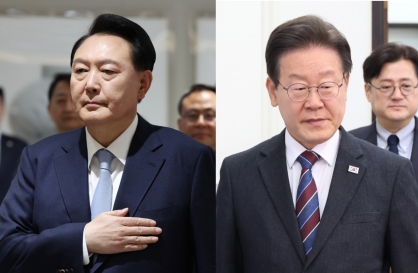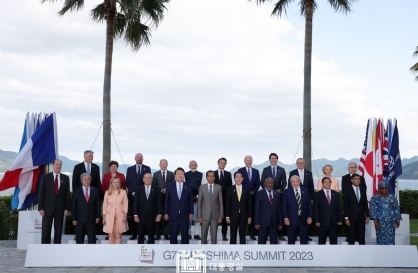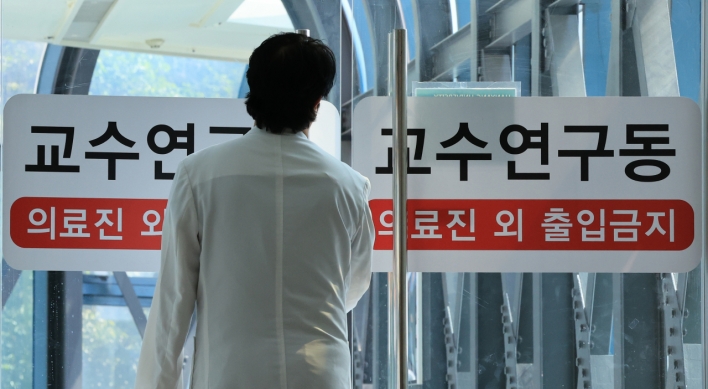[Editorial] Dialogue a realistic solution
Paris Baguette, bakers should settle hiring problem through negotiations
By Korea HeraldPublished : Dec. 6, 2017 - 17:34
Bakery franchiser Paris Baguette missed the government-set deadline Tuesday to hire all 5,309 bakers who work in its franchised stores across the country. The company with 5,200 regular employees says there are too many to hire.
The Ministry of Employment and Labor said it will fine the nation’s leading bakery chain 10 million won ($9,100) per baker it did not hire. However, it is considering exempting from the penalty those bakers who have agreed to move from their current employers to a joint venture set up by Paris Baguette, its franchisees and bakers’ employers. The ministry will also ask the prosecution to indict Paris Baguette for outsourcing baking jobs illegally.
Of course, it would be burdensome for the company to hire all of the bakers, but even so, its flat refusal to recruit any of them is unsatisfactory.
The bakers are employed by professional employers who signed outsourcing contracts with Paris Baguette. They work in its franchised locations. Even though the bakers have not contracted with the bakery chain, they follow its work instructions. Paris Baguette has set rules for the bakers’ employers to enforce regarding hiring, firing, evaluation and wages. It has even managed their time sheets. Paris Baguette effectively acted as a joint employer of the bakers. Outsourcing jobs in this way goes against labor law, which restricts the role of a franchiser to the training of franchisees and their workers.
And yet the ministry has gone too far with its instruction to hire that many bakers all at once within just two months. What company in the world can fulfill such a tall order? The ministry should have been more elaborate in dealing with the franchiser’s outsourcing offenses.
Conflicts of interest and differences of opinion exist between Paris Baguette, its franchisees, bakers and the employers over the order. As an alternative, a joint venture was formed. About 70 percent of the bakers are said to have agreed to give up being hired by the franchiser and move to the joint venture instead. But there are suspicions that a large number of the bakers were coerced into doing so. An investigation into these suspicions is needed.
The order, if carried out, is likely to cause complex and difficult problems. Paris Baguette argues that if it hires all of the bakers as ordered, its annual personnel costs will surge by 60 billion won. Last year, it reported operating profits of 66 billion won. Its profitability will be inevitably threatened.
The bakers at first welcomed the order. Becoming regular employees meant better working conditions and greater job security. But their thoughts soon began to change.
Being hired by the franchiser did not automatically mean becoming a regular staff member. They may have to do other jobs in addition to baking. Most worrisome was the possibility of their jobs disappearing at franchise stores because about 1,000 of 3,300 Paris Baguette shopkeepers expressed their intention to bake bread personally rather than using the bakers of the franchiser. No matter how well intended a government measure may be, it must be reconsidered if it endangers jobs. Paris Baguette says it will contest the order and penalty, if imposed, at court. However, it needs to take notice that a protracted legal battle will worsen the public opinion about its bakery brand. It may well rethink its obstinate policy not to hire bakers. Among others, it must clear the suspicions of coercing bakers into signing an agreement to refuse to be hired by it.
The most realistic and desirable way to solve the problem is dialogue between the franchiser and bakers. Both sides should try to understand each other. Those bakers who did not give up being hired by Paris Baguette and also raised the suspicions need to step back and consider the company’s difficult position.
The government ought to be active in seeking a scheme to protect the rights and interests of workers and at the same time reinvigorate the franchise company. A well-intended policy does not necessarily mean that it must be pushed hard no matter what happens.
-
Articles by Korea Herald


![[KH Explains] Will 6-day workweek for executives help Samsung avert crisis?](http://res.heraldm.com/phpwas/restmb_idxmake.php?idx=644&simg=/content/image/2024/04/21/20240421050096_0.jpg&u=20240421164408)


![[AtoZ into Korean mind] Humor in Korea: Navigating the line between what's funny and not](http://res.heraldm.com/phpwas/restmb_idxmake.php?idx=644&simg=/content/image/2024/04/22/20240422050642_0.jpg&u=)












![[Herald Review] Xdinary Heroes kicks off five-month-long project with solo concert, teases new album](http://res.heraldm.com/phpwas/restmb_idxmake.php?idx=652&simg=/content/image/2024/04/22/20240422050539_0.jpg&u=20240422152154)
![[Today’s K-pop] Illit logs 100m Spotify streams with debut song](http://res.heraldm.com/phpwas/restmb_idxmake.php?idx=642&simg=/content/image/2024/04/22/20240422050650_0.jpg&u=)